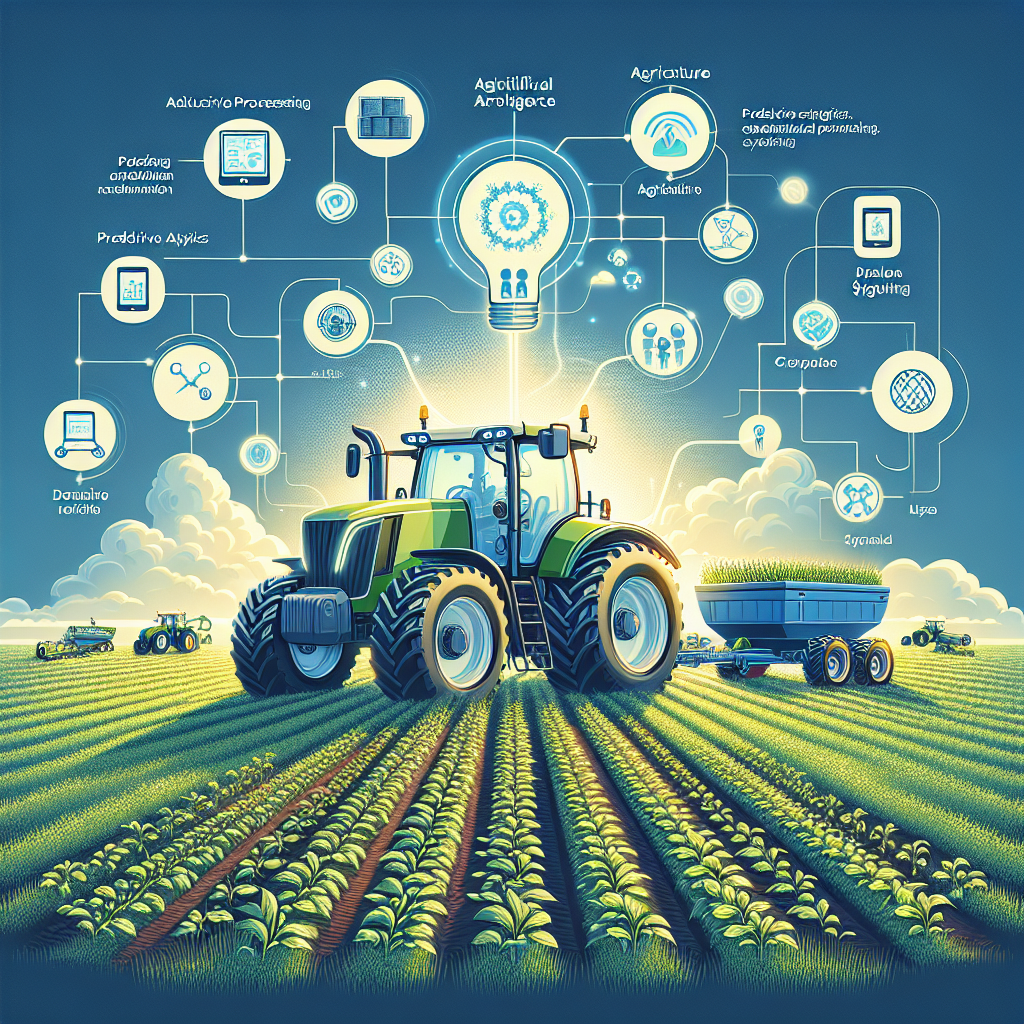In recent years, the agricultural industry has seen significant advancements in technology, particularly in the realm of artificial intelligence (AI). AI-powered solutions for agricultural machinery and equipment have revolutionized the way farmers work, increasing efficiency, productivity, and sustainability. From autonomous tractors to drones and smart sensors, AI is transforming the agriculture sector and helping farmers produce more with less. In this article, we will explore some of the key AI-powered solutions for agricultural machinery and equipment and discuss their benefits and implications for the industry.
Autonomous Tractors
One of the most significant advancements in agricultural machinery is the development of autonomous tractors. These self-driving vehicles are equipped with sensors, cameras, and GPS technology that allow them to navigate fields, plant seeds, apply fertilizer, and harvest crops without human intervention. Autonomous tractors can work around the clock, increasing the efficiency of farming operations and reducing labor costs.
These AI-powered tractors can also optimize planting patterns based on soil conditions and weather forecasts, ensuring that crops are planted at the right time and in the right place. This precision agriculture approach can significantly increase crop yields while reducing the consumption of water, fertilizer, and pesticides. Autonomous tractors are also equipped with safety features that allow them to detect obstacles and avoid collisions, making them safer to use in the field.
Drones
Drones have become an essential tool for farmers, providing valuable data and insights that can help optimize crop production. AI-powered drones are equipped with cameras and sensors that can monitor crop health, detect pests and diseases, and identify areas that need irrigation. This data can be used to create detailed maps of the field, allowing farmers to make informed decisions about planting, fertilizing, and harvesting.
Drones can also be used for spraying pesticides and fertilizers, reducing the need for manual labor and minimizing the environmental impact of these chemicals. AI algorithms can analyze the data collected by drones in real-time, providing farmers with actionable insights that can improve crop yields and reduce costs. Drones are also being used to monitor livestock, detect predators, and track the movement of animals in the field.
Smart Sensors
Another key AI-powered solution for agricultural machinery and equipment is the use of smart sensors. These sensors can be attached to tractors, irrigation systems, and storage facilities to monitor soil moisture, temperature, humidity, and other environmental factors. Smart sensors can provide real-time data that can help farmers make informed decisions about when to water, fertilize, and harvest crops.
AI algorithms can analyze the data collected by smart sensors and provide recommendations for optimizing crop production. For example, sensors can detect variations in soil moisture levels and adjust irrigation systems accordingly, ensuring that crops receive the right amount of water at the right time. Smart sensors can also detect early signs of pest infestations and diseases, allowing farmers to take proactive measures to protect their crops.
Benefits of AI-Powered Solutions for Agricultural Machinery and Equipment
There are several benefits of using AI-powered solutions for agricultural machinery and equipment. Some of the key advantages include:
– Increased efficiency: AI-powered machinery can work faster and more accurately than human operators, increasing the efficiency of farming operations.
– Improved productivity: AI algorithms can analyze data and provide recommendations for optimizing crop production, leading to higher yields and increased profitability.
– Sustainability: AI-powered solutions can help farmers reduce the consumption of water, fertilizer, and pesticides, making agriculture more sustainable and environmentally friendly.
– Cost savings: Autonomous tractors and drones can reduce labor costs and improve resource utilization, saving farmers time and money.
– Safety: AI-powered machinery is equipped with safety features that can help prevent accidents and injuries in the field.
FAQs
Q: How much do AI-powered solutions for agricultural machinery and equipment cost?
A: The cost of AI-powered solutions can vary depending on the type of technology and the size of the farm. Autonomous tractors and drones can be expensive to purchase upfront, but they can provide significant cost savings in the long run.
Q: Are AI-powered solutions easy to use?
A: Many AI-powered solutions are designed to be user-friendly and can be easily integrated into existing farming operations. Training and support are usually provided to help farmers get started with the technology.
Q: What are the potential drawbacks of AI-powered solutions for agricultural machinery and equipment?
A: Some potential drawbacks of AI-powered solutions include the risk of technical failures, data privacy concerns, and the need for ongoing maintenance and updates. Farmers should carefully consider these factors before investing in AI technology.
Q: Are AI-powered solutions suitable for all types of farms?
A: AI-powered solutions can be beneficial for farms of all sizes and types, but they may be more cost-effective for larger operations. Farmers should assess their specific needs and goals before implementing AI technology.
In conclusion, AI-powered solutions for agricultural machinery and equipment are revolutionizing the way farmers work, increasing efficiency, productivity, and sustainability. From autonomous tractors to drones and smart sensors, AI technology is transforming the agriculture sector and helping farmers produce more with less. By leveraging the power of AI, farmers can optimize crop production, reduce costs, and improve the overall efficiency of their operations. As the technology continues to evolve, we can expect to see even more innovative solutions that will further enhance the productivity and sustainability of the agricultural industry.

